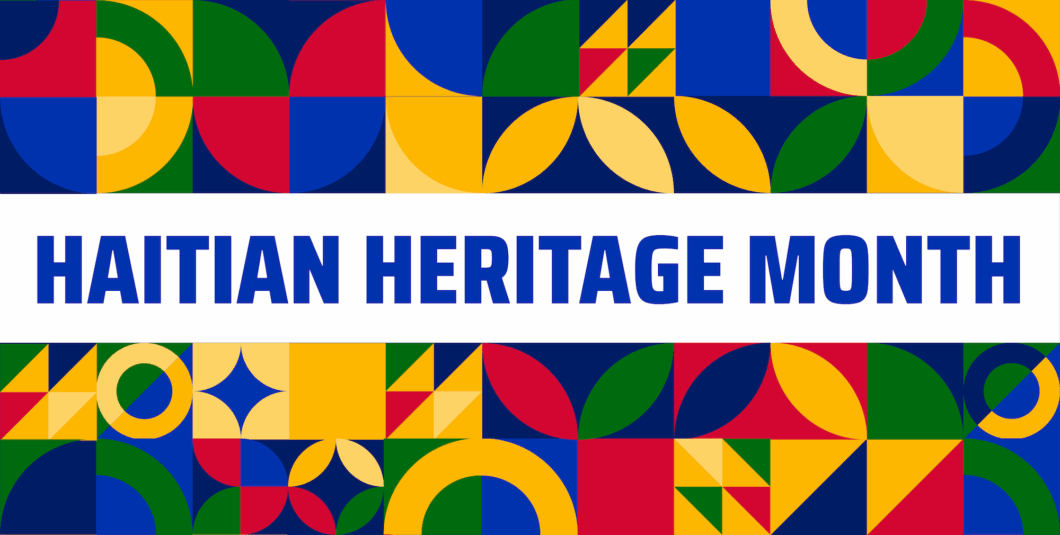Representation matters deeply in the professions of audiology and speech-language pathology—especially when it comes to serving linguistically and culturally diverse populations. In honor of Haitian Heritage Month, we are highlighting the voice of Dr. Jessica Jocelyn, PhD, CCC-SLP, an executive board member of the Haitian Caucus of ASHA and a Haitian clinician who is paving the way for equitable and culturally responsive care.
Her reflections underscore how multilingualism, cultural pride, and community engagement can transform the profession. Through her lived experiences and advocacy, Dr. Jocelyn sheds light on the urgent need for linguistic justice, Haitian Creole resources, and spaces where Haitian identity and heritage are fully seen, valued, and supported.
1. Why is representation important in audiology and speech-language pathology, and how has it influenced your journey in the field?
“If you talk to a man in a language he understands, that goes to his head. If you talk to
him in his language, that goes to his heart.” –Nelson Mandela
Something special happens when you meet someone who shares similar linguistic or cultural traits with you. You get a sense of relief when you find someone who can understand and relate to you! In a field that involves the knowledge and understanding of language and culture, it is important to have a diversity of representations of individuals from culturally and linguistically diverse backgrounds. I entered the field because there was a shortage of Haitian Creole-speaking speech-language pathologists (SLPs). My community needed representation. We needed more people with seats at the table to educate, research, and advocate for the diverse needs of the Haitian community.
2. Can you share a personal or professional experience that highlights the importance of culturally relevant care in audiology or speech-language pathology?
As a multilingual SLP, I can say that there have been many occasions where I have witnessed a communication difficulty between Haitian parents and their children. One instance was between a child and his father.
The child’s father is a bilingual French and Haitian Creole speaker who wanted to communicate a message to his 4-year-old son but was unable to do so because the child was a monolingual English speaker. Thus, the father turned to me and asked me to translate his message to his son. I was baffled that I needed to be a translator between a parent and a child because of the linguistic mismatch in the home.
When asked, “Why does the child not speak Haitian Creole?” the father’s response was, “He has trouble communicating in one language, so we do not want to introduce him to two languages.”
This is not the first time that I have witnessed this (untrue) belief among Haitian families. There are still misconceptions about bilingualism—one of the most common being that children cannot learn and be fluent speakers of two languages simultaneously (evidence has proven this to be untrue—quite the opposite, actually!). It is important for SLPs to provide culturally relevant care by understanding the sociolinguistic challenges of culturally and linguistically diverse families—and assisting families with overcoming those challenges.
3. What is one piece of advice that you would give to Haitian students or early-career professionals entering the field?
There is a Haitian proverb that says, “Men anpil, chay pay lou,” which is translated as
“Many hands make light work.”
In a discipline with so few Haitian SLPs, it may feel like you are the only Haitian SLP in a community with such a large need. You may want to help make a change, but the need is so great that doing so seems impossible. Take heart: You are not alone. There is a village of other SLPs out there—and not just SLPs but Haitian SLPs!
If we, Haitian SLPs, partner and band together, we can chip away at the much-needed work—one brick at a time. You can join a community of other Haitian SLPs, such as the Haitian Caucus of ASHA. You can seek mentorship from other SLPs. You are not on the boat alone; there are others available to come alongside you. You need to simply reach out.
4. What promising developments do you foresee in fostering cultural humility and deepening community engagement within audiology and speech-language pathology to better serve the Haitian community?
I foresee an increase in culturally responsive practice, as SLPs take the time to engage in cultural humility and deepen their engagement with the Haitian community. My hope is that as audiologists and SLPs increasingly engage in culturally responsive practice, we will see an increase in clinicians using culturally and linguistically appropriate assessment and treatment methods. As more audiologists and SLPs take time to connect with Haitian families, we should see greater awareness and understanding of the professions and of the communication disorders that arise among the Haitian community.
5. What impact do you hope to make in the profession of audiology or speech-language pathology?
I plan to contribute my research and clinical expertise to advocate and support linguistic
justice. Within the Haitian community, there is a need for resources, support, and advocacy for the speakers of the Haitian Creole language and its rich culture. Many Haitian parents have a desire to raise multilingual Haitian Creole speakers. However, Haitian Creole speakers in the United States lack sufficient resources and support. I hope to develop evidence-based treatment and assessment methods that support Haitian Creole speakers across the Haitian diaspora. I plan to use my privilege and expertise to dismantle the myths about bilingualism and to promote home language maintenance. “Kreyòl pale, Kreyòl konprann.”
Dr. Jocelyn’s insights remind us why it is essential to uplift the voices of multilingual Haitian professionals in the professions of audiology and speech-language pathology. From addressing common misconceptions about bilingualism to advocating for Haitian Creole representation in clinical tools and services, her work embodies the transformative power of culturally rooted care. Haitian Heritage Month offers an opportunity not just to celebrate culture but to amplify the need for continued advocacy, mentorship, and systemic change.

